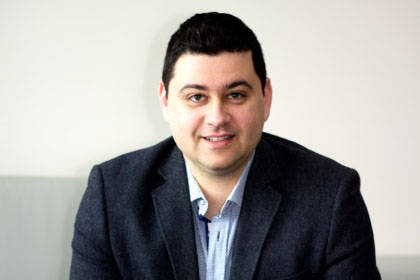A company’s intention in a job interview is to find the person who best fits a particular position. Recent research has shown that quite often, the candidate who was hired failed, and usually their exit was related to attitude issues that weren’t revealed in the interview.
That raises the question: Are interviewers asking the wrong questions — and consequently hiring the wrong people?
I think some traditional styles of interviewing are outdated, thus wasting time and resources while letting better candidates slip away.
It still astounds me to meet human resources professionals who lack the basic skills of interviewing. In 2019, “tell me about yourself” is still a way to start an interview, and that’s absurd. The only thing you get is people who describe the outline of their resume, which you already know.
You want to get to know the candidate’s personality in the interview. In a normal setting, you would have about one hour to do this. But some traditional interview practices waste this precious time, and you can miss out on great talent and instead hire a mediocre one.
Here are some interview approaches to help HR leaders, recruiters and executives find the right candidate:
• Make it a two-way conversation. Traditional interviewing focuses too much on the candidate’s skills and experience rather than on their motivation, problem-solving ability and willingness to collaborate. Try configuring the interview in a non-traditional, informal way to gain insight into the candidate’s personality. Rather than make most of the interview a rigid, constant question-and-answer format that can be limiting to both sides, have a two-way conversation and invite them to ask plenty of questions.
• Flip their resume upside down. Surprise them by going outside the box and asking them something about themselves that isn’t on their resume or in their cover letter. See how creatively they think and whether they stay calm. You want to see how a candidate thinks on their feet — a trait all companies value.
• Ask open-ended questions. Can this candidate make a difference in your company? Answering that question should be a big aim of the interview. Ask questions that allude to how they made a difference in certain situations at their past company. Then present a hypothetical situation and ask how they would respond.
• Don’t ask cliched questions. Some traditional interview questions only lead to candidates telling interviewers what the candidate thinks the company wants to hear. Interviewers should stop asking pointless questions like” “Where do you see yourself in five years?” Or, “Why do you want to work for this company?” Candidates rehearse these answers, and many of them are similar, so that doesn’t allow them to stand apart.
• Learn from the candidate’s questions. The questions candidates ask can indicate how deeply they’ve studied the company and how interested they really are. A good candidate uses questions to learn about the role, the company, and the boss to assess whether it’s the right job for them.
• Don’t take copious notes. The tendency by interviewers to write down the candidates answers and other observations is a huge obstacle to building a solid two-way conversation because it removes the crucial element of eye contact.
An effectively done interview allows the employer to get both an in-depth and big-picture look at a candidate. Judging whether they might fit starts with giving them more room to express in the interview.
Alex Zlatin, author of the book Responsible Dental Ownership, had more than 10 years of management experience before he accepted the position of CEO of dental practice management company Maxim Software Systems. He earned his MBA at Edinburgh Business School and a B.Sc. in Technology Management at HIT in Israel.









